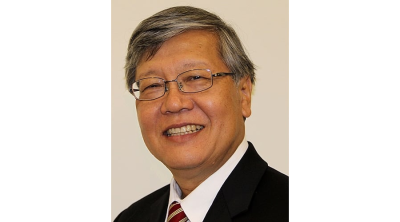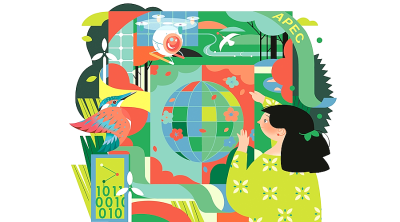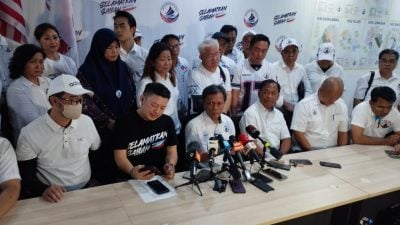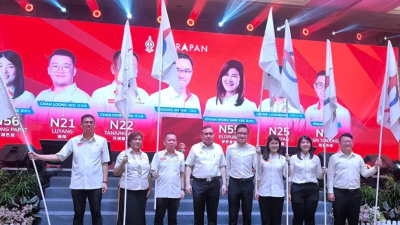
The mutual visa-free policy between Malaysia and China has sparked ongoing discussion about the potential for China’s “involution culture” known as neijuan (a state where individuals or systems are trapped in a cycle of competition without real progress) to spread to Malaysia.
I’d like to take this opportunity to share some thoughts on this culture in Johor Bahru.
This isn’t a critique—just a perspective for readers to reflect on from different angles.
Let’s begin with a definition of “involution” (neijuan) using Joanna Lei Chien’s words.
Joanna is a well-known Taiwanese scholar and current affairs commentator. She shared her views when asked about the phenomenon when speaking at Sin Chew Daily earlier this month.
She explained that “involution” is another way to describe “competition,” and that competition is the driving force behind an enterprise.
While she acknowledged that many Malaysians are concerned about this phenomenon, she suggested seeing it from a different angle—as a must-have mechanism for economic development.
The so-called “involution culture” can be seen as a culture of business competition—entrepreneurs seeking creative and effective ways to gain an edge.
In fact, even before the mutual visa-free agreement between Malaysia and China, the “involution culture” of Chinese nationals have already arrived in Johor Bahru, brought in by the Malaysia My Second Home (MM2H) program.
Let me use a restaurant as an example: there is one in Johor Bahru run by Chinese nationals from Chaozhou (Teochew) in China.
The owner wanted to serve beef hotpot as close in flavor and quality as to what one would find back in Chaozhou.
To achieve this, he created his own food supply chain.
He found that the local beef was too pale in color and had a different texture. He believed this was due to differences in breeding methods and feed.
So, he went to southern Thailand to find the most ideal breed of cattle and then located a suitable Malay cattle farmer in the southwestern outskirts of Johor Bahru.
He now arranges for the cattle to be transported weekly from southern Thailand to Johor Bahru, where they are raised under his specific methods until they reach maturity.
Because he controls the source and quality of the beef, the popularity of the hotpot at his restaurant speaks for itself.
Next, he plans to open a factory to produce Teochew-style beef balls and even enter the halal market.
Isn’t that the epitome of “involution”? I believe this entrepreneur embodies the competitive edge of the Chinese spirit—something we can all learn from.
Singapore is a highly competitive society. The attractive job opportunities in Singapore already compels locals to compete—this is one level of “involution.”
Singaporean entrepreneurs are also known for their sharp business acumen, and they rarely miss investment opportunities in Johor Bahru—this is another level.
Much has been said about the talent drain, so I won’t dwell on that. But in terms of business investment, the latest focus is on Johor Bahru’s old town.
Business competition is round the clock and everywhere. Even without the visa-free policy between Malaysia and China, evolving circumstances will always introduce new forms of involution or competition.
Thanks to favorable exchange rates and the progress of the Johor Bahru–Singapore Rapid Transit System (RTS), the old town of Johor Bahru —a hot spot for Singaporean tourists—has attracted many brands backed by Singaporean shareholders or funding.
Numerous shop lots in the area have caught the eye of Singaporean investors.
The old town is located near the Johor-Singapore Causeway and is just a short walk from the checkpoint, making it very accessible to Singaporeans.
It also features cultural attractions such as the ancient temple and traditional eateries, as well as large shopping malls, making it ideal for a day trip.
As a result, even on weekdays, the area is bustling with visitors.
However, these favorable factors have also caused rental prices to skyrocket, indirectly affecting the original business ecosystem.
Some local businesses have already pulled out, and we’re now witnessing the phenomenon of “Singaporeans making money off other Singaporeans in the old town of Johor Bahru.”
Local businesses must step up their game—either by increasing competitiveness, adapting, or transforming—to carve out a new niche.
But Johor Bahru is not only “importing” the competition culture. For years, it has also been “exporting” its own version to Singapore in various ways.
For many years, many service industries—especially those do not require a physical store, stretched their business across the border to Singapore, thanks to the convenience of social visit passes.
Despite a long list of regulations imposed by Singapore, the ease of travel between the two places makes it difficult to enforce restrictions.
This is one way Johor Bahru “exports” competition.
Another form of export lies in consumer behavior and lifestyle.
The difference in currency exchange has long encouraged Singaporeans to shop and invest in Johor Bahru.
When the RTS is completed in 2027—with an hourly capacity of up to 10,000 passengers—it will be even more convenient for Singaporeans to cross the border for shopping and dining, further impacting retail, food and beverage industries in Singapore.
Yeo Hiang Meng, president of Federation of Merchants’ Associations, Singapore, said in a media interview this January that once the RTS is in operation, many businesses in the neighborhood will face survival challenges.
“Mobile phone shops, optical shops, and foot massage parlors will all be affected. Many shops will close and rental prices will drop.
“Many Malaysians working in Singapore will move to Johor Bahru. They will no longer rent homes or dine in Singapore, affecting the rental and F&B markets.”
So, the “involution culture” or competition between Johor Bahru and Singapore is not new—and it’s here to stay.
In conclusion, business competition is round the clock and everywhere. Even without the visa-free policy between Malaysia and China, evolving circumstances will always introduce new forms of involution or competition.
I believe that by getting ourselves prepared and enhance our own competitiveness, we can handle various forms of competition that come our way.
(Ho Wan Mee is Sin Chew Daily Deputy Editor-in-Chief cum Johor Senior Chief Reporter.)
ADVERTISEMENT
ADVERTISEMENT








































